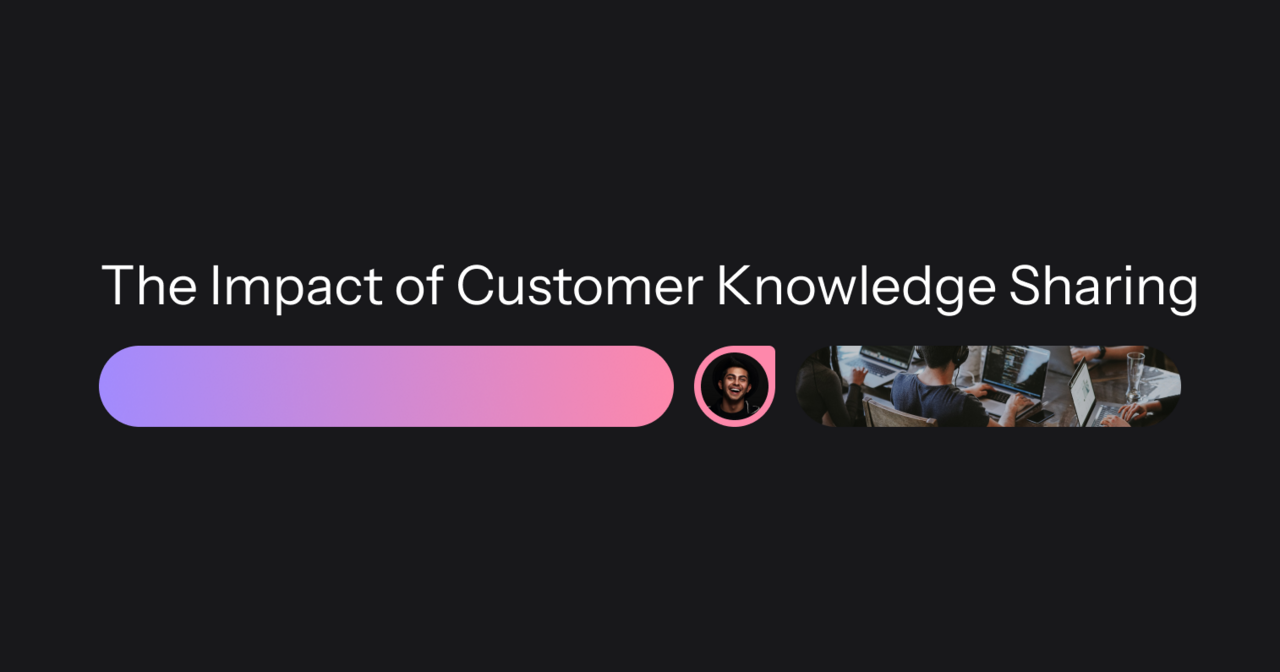The Impact of Customer Knowledge Sharing

By connecting customers with the right knowledge, experts, and collaborators at the right time, businesses can achieve a range of positive outcomes.
Enhanced Customer Lifetime Value (CLV)
Providing customers with the knowledge they need to fully utilize your products or services increases the average revenue per customer. When customers can access valuable insights and support, they are more likely to continue using your offerings, leading to longer, more profitable relationships. Measure this by tracking the increase in average revenue per customer and the duration of customer relationships.
Improved Customer Retention Rate
Effective knowledge sharing supports customers in achieving their goals, building trust, and enhancing loyalty. By offering timely and relevant information, you can reduce customer churn and ensure that your customers remain engaged and satisfied with your services. Monitor customer churn rates and assess loyalty through repeat purchase behavior.
Reduced Support Ticket Volume
Empowering customers to find solutions independently and with peer support decreases the volume of support tickets. This allows your support teams to focus on more complex issues and strategic initiatives, improving overall efficiency. Track the number of support tickets over time and measure the efficiency and resolution rate of support teams.
Faster Time to First Value (TTFV)
Knowledge sharing helps customers quickly understand and realize the value of your product or service. By providing clear and accessible information, you can accelerate the time it takes for customers to achieve their first successful outcome, enhancing their initial experience. Measure the time it takes for customers to achieve their first successful outcome and gather feedback on the initial customer experience.
Increased Net Promoter Score (NPS)
Customers who have positive experiences through effective knowledge sharing are more likely to recommend your brand to others. This word-of-mouth promotion drives new customer acquisition and strengthens your brand reputation. Conduct NPS surveys to gauge customer satisfaction and likelihood to recommend, and track changes in NPS over time.
Lower Content Production Costs
Encouraging customer contributions to your knowledge base enriches the quality of your content while reducing the burden on internal content teams. This approach not only lowers content production costs but also ensures that the information remains relevant and diverse. Monitor the volume of user-generated content and compare internal content production costs before and after implementing knowledge sharing.
Better Understanding of Customer Needs
Encouraging customers to share insights and experiences allows businesses to stay agile and responsive to market changes and evolving customer expectations. Collect and analyze customer insights and feedback, and track responsiveness to market changes and customer expectations.
Increased Sales Through Personalized Recommendations
Tailoring knowledge to individual customer needs leads to more effective sales interactions and higher conversion rates. Measure sales conversion rates and track the effectiveness of tailored sales interactions.
Strengthened Community Engagement
Knowledge sharing fosters a sense of community among customers, enhancing engagement, loyalty, and advocacy as customers feel more connected to the brand and eachother. Monitor community participation and engagement rates, and assess the impact on customer loyalty and advocacy.
By leveraging customer knowledge sharing, businesses can create a thriving ecosystem where customers feel valued and supported, leading to sustained growth and success.
Ready to transform your customer engagement? Continue to learn all about Zapnito’s Customer Knowledge Sharing Model.





To access please sign in or register for free
If you are a registered user on Zapnito Knowledge Hub, please sign in